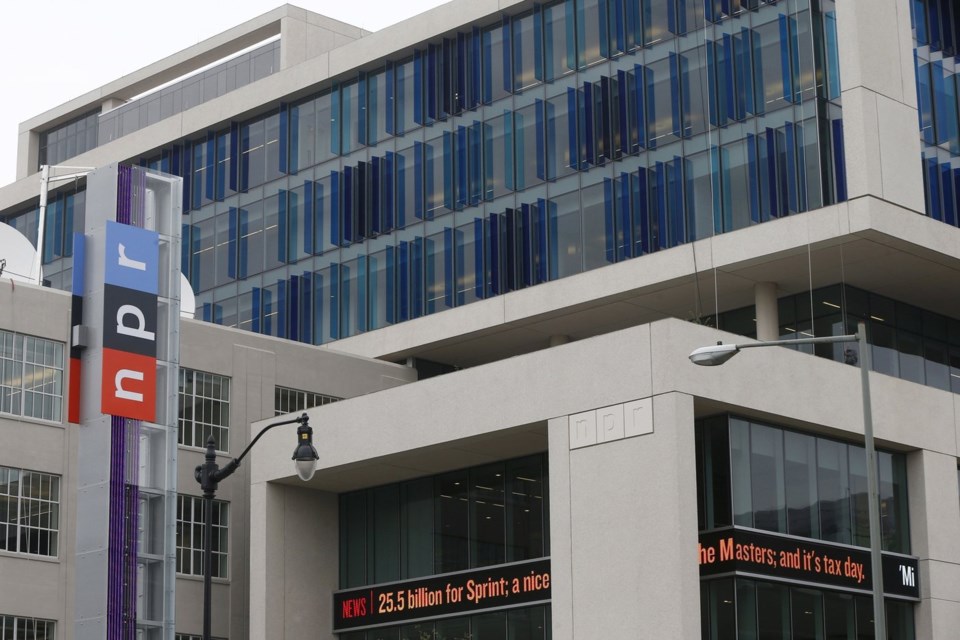NEW YORK (AP) — National Public Radio and three of its local stations sued President Donald Trump on Tuesday, arguing that his executive order cutting funding to the 246-station network violates their free speech and relies on an authority that he does not have.
Earlier this month, Trump instructed the Corporation for Public Broadcasting and federal agencies to cease funding for NPR and PBS, either directly or indirectly. The president and his supporters argue their news reporting promotes liberal bias and shouldn't be supported by taxpayers.
Retaliation is Trump's plain purpose, the lawsuit argues. It was filed in federal court in Washington by NPR and three Colorado entities — Colorado Public Radio, Aspen Public Radio and KUTE, Inc., chosen to show the system's diversity in urban and rural areas.
“By basing its directives on the substance of NPR's programming, the executive order seeks to force NPR to adapt its journalistic standards and editorial choices to the preferences of the government if it is to continue to receive federal funding,” Katherine Maher, NPR's CEO, said Tuesday.
Lawsuit says Trump is targeting a private nonprofit corporation
The lawsuit alleges that Trump is acting to contravene the Corporation for Public Broadcasting, a private nonprofit corporation set up to distribute federal funding to NPR and PBS, which is intended to insulate the system from political interference. Congress has appropriated $535 million yearly to CPB for 2025, 2026 and 2027.
In response to the lawsuit, White House deputy press secretary Harrison Fields said that CPB “is creating media to support a particular political party on the taxpayers' dime,” so Trump was exercising his authority under the law. “The president was elected with a mandate to ensure efficient use of taxpayer dollars, and he will continue to use his lawful authority to achieve that objective,” Fields said.
Trump hasn’t hidden his feelings about NPR, calling it a “liberal disinformation machine” in an April social media post.
The court fight seemed preordained, given that the heads of NPR and PBS both reacted to Trump’s move earlier this month with statements that they believed it was illegal. The absence of PBS from Tuesday’s filing indicates the two systems will challenge this separately; PBS has not yet gone to court, but is likely to soon.
“PBS is considering every option, including taking legal action, to allow our organization to continue to provide essential programming and services to member stations and all Americans,” PBS spokesman Jeremy Gaines said Tuesday.
Trump is in other legal disputes with news organizations
The president's attempts to dismantle government-run news sources like Voice of America and Radio Free Europe/Radio Liberty have also sparked court fights.
The administration has battled with the press on several fronts. The Federal Communications Commission is investigating ABC, CBS and NBC News. The Associated Press also went to court after the administration restricted access to certain events in response to the organization's decision not to rename the Gulf of Mexico as Trump decreed.
The lawsuit says 11% of Aspen Public Radio's budget is provided by the Corporation for Public Broadcasting. It is 6% for the Colorado Public Radio, a network of 19 stations, and 19% of KUTE's budget. That station was founded in 1976 by the Southern Ute Indian Tribe.
NPR notes that the order attempts to prohibit individual stations in NPR's system from using any federal money to buy NPR programming, like “All Things Considered,” the most listened-to afternoon radio news program in the country, its early counterpart “Morning Edition” and cultural programming like the Tiny Desk concerts.
The order “directly interferes with editorial independence by requiring them to seek programming elsewhere,” the lawsuit said.
NPR says it also provides infrastructure services to hundreds of public radio stations and without it, their coverage area would shrink. It also provides the backbone for emergency alert systems across the country.
“Public broadcasting is an irreplaceable foundation of American civic life,” Maher said. “At its best, it reflects our nation back to itself in all our complexity, contradictions and commonalities and connects our communities across differences and divides."
___
David Bauder writes about the intersection of media and entertainment for the AP. Follow him at http://x.com/dbauder and https://bsky.app/profile/dbauder.bsky.social
David Bauder, The Associated Press




